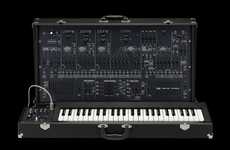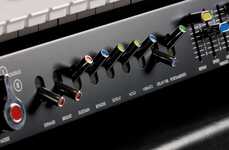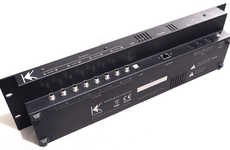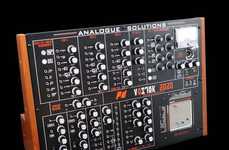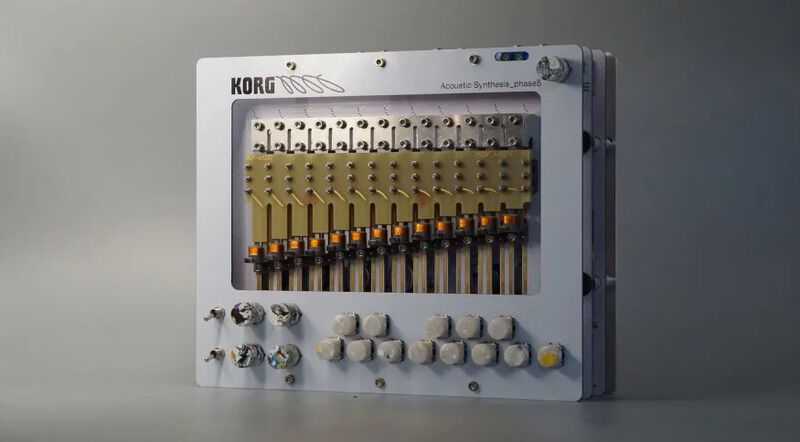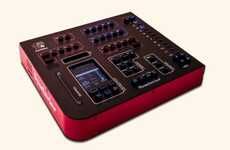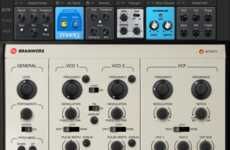
Korg Berlin's Acoustic Synthesis_phase5 is its First Prototype
Korg Berlin is an independent division that is focused on R&D founded by Maximilian Rest and Tatsuya Takahashi and now it presents its new Acoustic Synthesis_phase5. This is its idea of an acoustic synthesizer and how it differentiates from a traditional synth is that it utilizes oscillators. The Acoustic Synthesis_phase5 uses tuned metal forks and these are all designed specifically to create fundamental notes and overtones.
Takashi talks about how it will feedback and speaks to Fess Grandiose of Reverb, noting that "we're trying to kind of capture this rawness of instruments while being at the same time, controllable like a synthesizer." The acoustic part is the metal tines that let out a ring, resonate, and decay.
Image Credit: Korg Berlin
Takashi talks about how it will feedback and speaks to Fess Grandiose of Reverb, noting that "we're trying to kind of capture this rawness of instruments while being at the same time, controllable like a synthesizer." The acoustic part is the metal tines that let out a ring, resonate, and decay.
Image Credit: Korg Berlin
Trend Themes
1. Acoustic Synthesis - Developing acoustic synthesis technology that creates raw and controllable instrument-like sounds through the use of oscillators presents new possibilities for electronic music production.
2. Tuned Metal Forks - The use of specifically designed metal forks as a sound source in an acoustic synthesizer opens up opportunities for exploring new soundscapes and production techniques.
3. Rawness of Instruments - Emulating the raw and organic sounds of traditional instruments in a controllable way represents a novel approach that could spur innovation in electronic musical instrument manufacturing and design.
Industry Implications
1. Electronic Musical Instruments Manufacturing - Manufacturers of electronic musical instruments could explore the potential of acoustic synthesis technology to create unique instruments that combine the best aspects of traditional acoustic sounds and synthesizers.
2. Audio Engineering - Acoustic synthesis technology presents new opportunities for audio engineers in producing sounds that were previously unattainable, especially for sound designers working with contemporary electronic music genres.
3. New Media Art Performance - Artists and performers using new media technologies in their practice could integrate acoustic synthesis capabilities in their works, opening up new aesthetic possibilities and novel expressions for audiences.
1.7
Score
Popularity
Activity
Freshness


